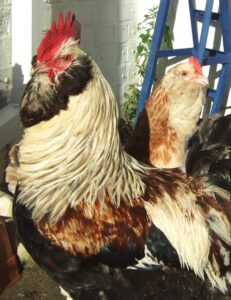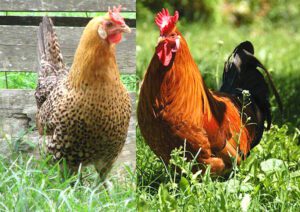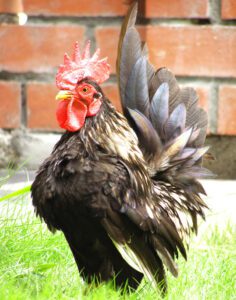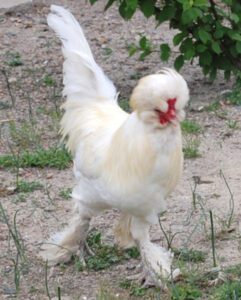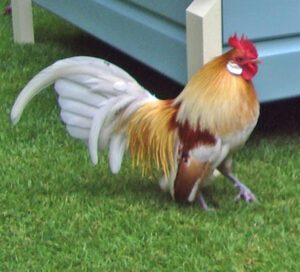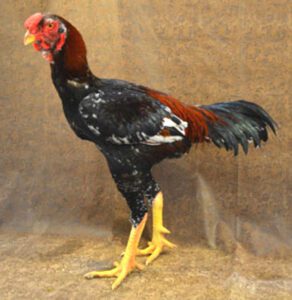The Orpington chicken breed was originally developed in England in 1886. It was named as ‘Orpington’ after the town of Orpington, Kent, in south-east England. It was developed mainly to be an excellent layer with good meat quality.
Now Orpington chickens are wonderful dual purpose bird and among the top choices for small farms because they are docile, sweet and grow nice and large.
They lay eggs and produce tasty meat and the hens go broody easily. You can have a natural setup for the Orpington chickens where they will reproduce and continue for generations.
This chicken breed is also very cold hardy and produce eggs well through frigid winters and dark, short days.
Nowadays, Orpington chicken is a popular and attractive breed mainly for it’s large size, soft appearance and it’s rich color and gentle contours. It is also popular as a show bird.
Orpington Chicken Characteristics
Orpington chickens are heavy in size but loosely feathered, appearing massive. They have better feathering than some other breeds, and their feathering allows them to endure cold temperatures. They are very cold hardy birds. There are two similar but different standards for Orpington chickens.
The first one asks for a weight from 3.6kg to 4.55kg for roosters and 2.7kg to 3.6kg for hens by the Poultry Club of Great Britain. They also ask or a broad body with a low stance, heavy and with fluffed-out feathers which make it look large (the down from the body covers most of the legs).
Other characteristics of their Orpington chickens include a curvy shape with a short back and U-shaped underline and a small head with medium single comb.
The skin color of Orpington chicken is white. Hens lay larger light brown colored eggs. They are pretty good layers and on an average, hens lay about 3-4 eggs per week. They reach maturity earlier.
On an average, male Orpington chickens weight around 3.6kg to 4.55kg and females weight around 2.7kg to 3.6kg. Buff, Black, White, and Blue Orpington’s are recognized color varieties of this chicken breed.
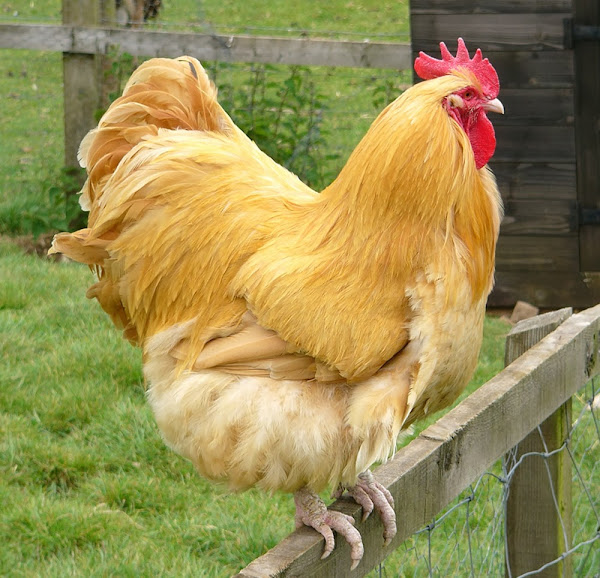
Behavior/Temperament
Orpington chickens are good birds to have. They are gentle and docile, calm and patient. They are also great with kids.
Uses
Orpington is a dual-purpose chicken breed. It is good for both meat and eggs production purposes.
Special Notes
Orpington chickens are relatively calm and friendly. They come in Buff, Black, White and Blue varieties. They bear confinement well. They are docile, quite and easily handled. Review full breed profile below.
| Breed Name | Orpington |
| Other Name | None |
| Breed Purpose | Dual Purpose |
| Breed Temperament | Calm, Friendly, Bears Confinement well, Easily Handled, Docile, Quite |
| Breed Size | Heavy (2.7kg – 4.55 kg) |
| Broodiness | Frequent |
| Comb | Single |
| Climate Tolerance | All Climates (very cold hardy) |
| Egg Color | Light Brown |
| Egg Size | Large |
| Egg Productivity | Good (about 3-4 eggs/week) |
| Feathered Legs | No |
| Rarity | Buff is Common (others rare) |
| Varieties | Buff, Black, White, and Blue |
Pros/Advantages
- Beautiful
- Calm
- Docile
- Gentle
- Patient
- Very friendly
- Fluffy
- Good layers
- Go broody and hens are great mothers
- Good with kids
- Lay larger light brown eggs
- Not noisy
- Winter hardy
Cons/Disadvantages
- A lot of them look same (hard to tell apart without leg bands)
- Can get beat up by bossier chickens
Is Orpington Chicken Good for You?
Orpington chickens are good for you if you…….
- Are willing to raise dual purpose chicken breed.
- Want to have beautiful chickens with good temperament.
- Have children and want to raise some friendly chickens.
- Want to produce large eggs and good quality tasty meat.
- Are looking for broody chickens which are great mothers also.
- Are looking for larger birds for your backyard or small farm.
- Live somewhere in cold areas and looking for cold hardy chickens.

